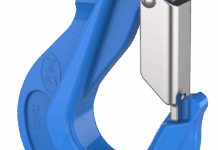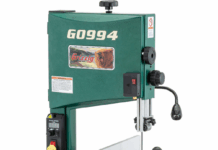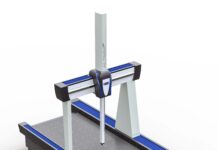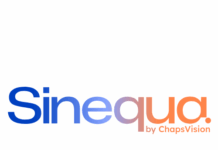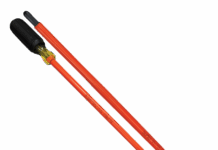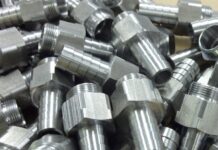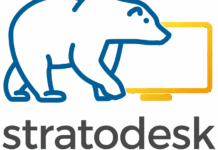 This year marks the Initiative’s 10th anniversary. Tell us how you got started, and what you’ve accomplished during that time.
This year marks the Initiative’s 10th anniversary. Tell us how you got started, and what you’ve accomplished during that time.
I established the Reshoring Initiative in 2010. I had retired as president of Agie Charmilles, which is now GF Machining Solutions, after 25 years, and I was developing strategies for how U.S. manufacturers could pick products where they could avoid competing with China. Then I realized a better approach would be to figure out exactly how to compete with China head to head instead. That’s when I developed the Total Cost of Ownership (TCO) Estimator, a free online tool that allows businesses to compare the total cost of domestic and offshored parts or products. The TCO Estimator is used by OEMs to buy smarter and by suppliers to sell smarter against imports by providing this in-depth data to their customers. It’s an invaluable tool in helping build the case for why U.S. manufacturers should be producing and buying locally. So as we worked on developing these types of industry resources – including building an open online library with articles and information related to reshoring – we began developing partnerships within the industry and also created a board of directors that has been very helpful. We had many people volunteer their time and expertise, including a law firm that worked pro bono to get us set up as a 501c3 organization and obtain trademarks. Reshoring was the new trend and we really began to grow by leaps and bounds. Soon I was making more than 100 presentations around the country each year, and the national and industry media started to follow our efforts and write about us. We gained recognition from government agencies, and I even traveled to meet President Obama at the White House. Then, when Donald Trump was elected to office, reshoring surged to 180,000 jobs announced in 2017 because of his business-friendly tax policies. The surge moderated to still high, but not record, levels in 2018 and 2019 primarily due to business uncertainty caused by the trade war.
 How has the global recession, trade wars, and the pandemic affected U.S. manufacturers’ attitudes about reshoring, or keeping jobs at home in the first place?
How has the global recession, trade wars, and the pandemic affected U.S. manufacturers’ attitudes about reshoring, or keeping jobs at home in the first place?
Before these things began happening, starting a conversation about reshoring was a harder sell. Now companies realize the importance of being self-sufficient, or at least less dependent on foreign manufacturing and suppliers, and are reaching out to us. They understand that the global supply chain is in serious disrepair, and the U.S. framework must be rethought and made to be more robust. We mostly work with small-to-medium-size companies, with 20-500 employees, and I think U.S. manufacturers have come to realize that it’s time to get a closer grip on the full scale of their business activities, the health of their supply chain, and doing what they can to take back jobs and revenue lost to overseas competition. So I see a lot to be hopeful about in the direction being taken by companies of this size, but I still think the large corporations are making some less productive choices. The best actions such companies could take to address income inequality would be to reshore manufacturing, creating new jobs here in the States, both in urban and rural areas, creating millions of jobs and helping the individuals and the economy get back on their feet.
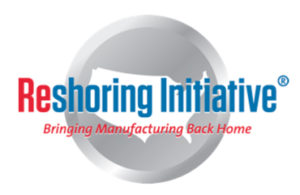 So what new resources or programs do you have in the works?
So what new resources or programs do you have in the works?
Quite a few, actually. One is called the Import Substitution Program (ISP), which was created to help suppliers and other organizations motivate importing companies to produce or source domestically more of the products they’re selling in the U.S. For example, a supplier or contract manufacturer identifies products that it makes most competitively. We identify the biggest importers of those products. The supplier then uses the TCO Estimator to convince the importer to source domestically. An equipment supplier or economic developer could use the same tools to convince the importer to invest and again produce the products here. We have different ISP templates for working through manufacturing companies, economic development organizations, trade associations, technology suppliers, and manufacturing extension partnerships. In addition, we have the Supply Chain Gaps Program, where we will identify products with no or minimal domestic production, and where there is a large volume of imports. We then provide this information to U.S. manufacturers who can review the list, consider the potential, and choose five items they would be interested in beginning to produce themselves and become the only or primary U.S. manufacturer. Alternatively, economic developers could reach out to the foreign suppliers and convince one to start manufacturing here. The Reshoring Initiative then supplies all the hard market data they require – annual import volume, largest importers, foreign suppliers, etc. – and also provides training on the TCO Estimator to help guide them through the decision-making process. So these are just a few examples of the ways we’re reaching out to U.S. manufacturers. It’s really gratifying to see how well our work is being received. Companies can use our tools to accelerate out of the current recession.






